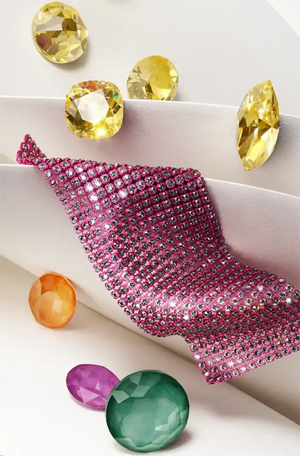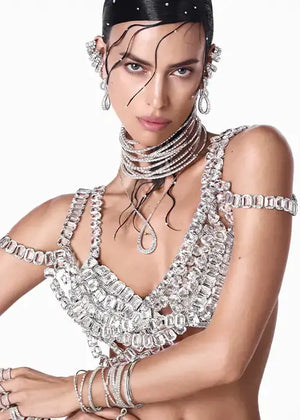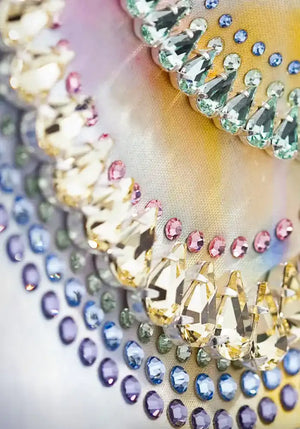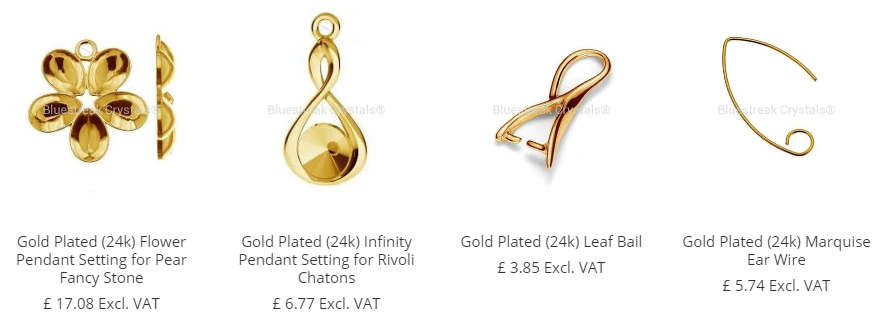
The Art of Filigree in Jewelry Design
When it comes to different types of gold jewellery (and silver for that matter), filigree jewelry is hard to match when it comes to timeless elegance. Whether you’re drawn to its vintage charm or curious about the techniques behind these stunning designs, filigree jewelry has a rich story to tell. Let’s explore what makes this type of jewelry so unique.
What is Filigree Jewelry?
At its core, filigree jewelry is all about fine, lace-like designs created from twisted threads of metal. These threads are shaped into intricate patterns, often featuring swirls, vines, or floral motifs. The result is a piece of jewelry that feels both light and detailed, making it a favorite for everything from rings to brooches.
Filigree isn’t just about beauty—it’s also a testament to the jeweler’s skill. Each piece is crafted with precision and care, transforming simple materials into wearable works of art.
The History of Filigree Jewelry
Filigree has a history as intricate as its designs. This technique dates back thousands of years, with roots in ancient Mesopotamia, Greece, and Rome. Over time, it spread across cultures, with each region adding its unique touch to the craft.
During the Victorian era, filigree jewelry gained popularity for its romantic and feminine aesthetic. It became a symbol of refinement, often used in engagement rings and heirloom pieces. Today, filigree remains a beloved style, cherished for its ability to blend traditional artistry with modern design.
Techniques of Filigree Jewelry Making
The creation of filigree jewelry involves a mix of traditional methods and modern tools, ensuring each piece is both durable and exquisite.
Basic Techniques
Filigree begins with twisting and curling thin wires of metal to form intricate patterns. These wires are then soldered together and carefully shaped to create a unified design. The process demands patience and precision, as even the smallest misstep can affect the final piece.
Tools Used in Filigree
From specialized tweezers to fine-tip soldering tools, filigree requires equipment designed for detail work. Jewelers also use molds and templates to guide their designs, ensuring consistency in patterns.
Common Materials
While gold and silver are the most popular materials for filigree, other metals like platinum and copper can also be used; the choice of metal often depends on the desired look and the piece’s intended purpose. When it comes to crafting ,don’t forget that high quality jewelry findings are essential to achieving a polished and professional finish.
Design Elements in Filigree Jewelry
Filigree is as much about artistry as it is about craftsmanship. The design elements used in this style set it apart from other jewelry-making techniques.
Patterns and Motifs
Traditional filigree designs often feature nature-inspired motifs like flowers, leaves, and vines. These patterns add an organic feel to the jewelry, making it both elegant and timeless. Geometric shapes and abstract swirls are also common, offering a more modern twist on this classic technique.
Modern Filigree Designs
While filigree has a vintage appeal, contemporary jewelers are reimagining it in fresh ways. Think minimalist earrings with delicate swirls or statement necklaces that combine filigree with gemstones. The fusion of old and new keeps filigree relevant, appealing to a wide range of styles and tastes.
Caring for Filigree Jewelry
Filigree pieces are undeniably beautiful, but their delicate nature requires a little extra care to keep them looking their best.
Cleaning Tips
Use a soft cloth to gently wipe your filigree jewelry after each wear. For a deeper clean, warm soapy water and a soft-bristle brush can help remove dirt from the intricate patterns. Avoid using harsh chemicals, as they can damage the metal or any attached stones.
Storage Suggestions
When not in use, store your filigree jewelry in a padded box or a soft pouch to prevent tangling or damage. Keeping pieces separate can also protect them from scratches and preserve their intricate details.
The Appeal of Filigree Jewelry
So, what makes filigree jewelry so enduringly popular? Its timeless beauty and unique craftsmanship play a big role, but there’s more to its charm.
Why People Love Filigree
Filigree jewelry offers a perfect blend of elegance and individuality. Each piece feels one-of-a-kind, thanks to its handcrafted nature. Whether it’s a delicate bracelet or a bold pendant, filigree adds a touch of sophistication to any outfit.
Popular Filigree Jewelry Pieces
From engagement rings to statement earrings, filigree designs are found in all types of jewelry. Necklaces with filigree pendants and vintage-inspired brooches are particularly sought after, as they showcase the technique’s intricate patterns beautifully.
Final Thoughts
The art of filigree is a true celebration of detail, craftsmanship, and beauty. Whether you’re drawn to its history, captivated by its designs, or inspired by its versatility, filigree jewelry offers something for everyone.








